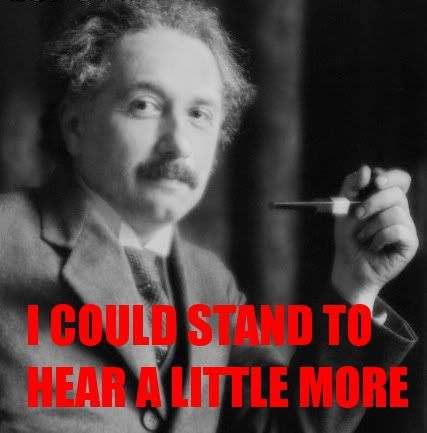My first thought was to have a massive original post, but if this thread happens to catch on, I imagine several people will have many views to contribute, so I think it's best just to get the ball rolling and leave a little bit of thunder for everyone.
I just read, from first post to last, the Ancient Aliens thread, and that's what brought this to the front of my mind this morning.
The idea of not "trusting" science was voiced, as was the idea that scientists circle the wagons to protect prevailing theory.
Well, to me, those thougths, (this is not directed at or limited to the handful of posters from that thread--the number of people is in the millions, possibly billions) show a total lack of understand of what "science" is.
First, what it is NOT:
Science is NOT a body of knowledge.
Science is NOT a belief or set of beliefs.
Science is an algorithm. That is, science is a system of steps for solving a problem--or, if you'd rather, for answering a question.
I could go on for paragraph after paragraph, but I'll leave it there and start the discussion.
-----------------
The word "theory" is likely to appear in this thread. So we're all on the same page, let's start by standardizing some definitions so we all know what we're saying to each other:
Hypothesis: This is an educated guess based upon observation. It is a proposed explanation of a single event or phenomenon based upon what is observed, but which has not been proved. Most hypotheses can be supported or refuted by experimentation or continued observation.
Theory: A theory is what one or more hypotheses become once they have been verified and accepted to be true. A theory is an explanation of a set of related observations or events based upon proven hypotheses and verified multiple times by detached groups of researchers.




 I don't think people have any problem considering non-scientific thought. Unfortunately, some people will consider anything, no matter how absurd or baseless. There has to be a balance.
I don't think people have any problem considering non-scientific thought. Unfortunately, some people will consider anything, no matter how absurd or baseless. There has to be a balance.